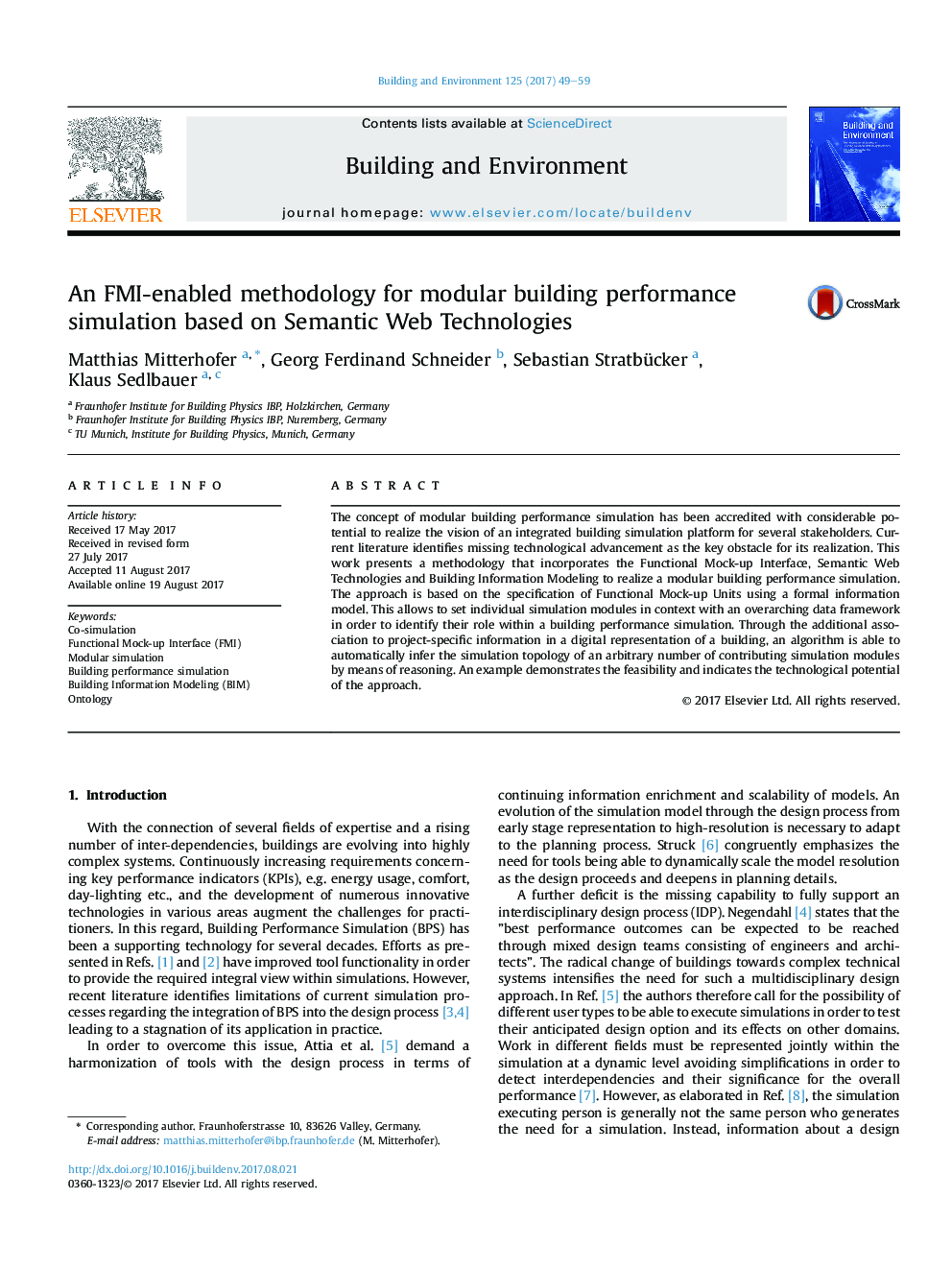| Article ID | Journal | Published Year | Pages | File Type |
|---|---|---|---|---|
| 6479213 | Building and Environment | 2017 | 11 Pages |
â¢A methodology for a modular building performance simulation is proposed.â¢It is based on the tool-independent Functional Mock-up Interface (FMI).â¢Using the web ontology language, FMUs can be linked to an overarching data framework.â¢Modules are connected automatically through knowledge-based reasoning.â¢Linking to BIM data complements the generation of the simulation topology.
The concept of modular building performance simulation has been accredited with considerable potential to realize the vision of an integrated building simulation platform for several stakeholders. Current literature identifies missing technological advancement as the key obstacle for its realization. This work presents a methodology that incorporates the Functional Mock-up Interface, Semantic Web Technologies and Building Information Modeling to realize a modular building performance simulation. The approach is based on the specification of Functional Mock-up Units using a formal information model. This allows to set individual simulation modules in context with an overarching data framework in order to identify their role within a building performance simulation. Through the additional association to project-specific information in a digital representation of a building, an algorithm is able to automatically infer the simulation topology of an arbitrary number of contributing simulation modules by means of reasoning. An example demonstrates the feasibility and indicates the technological potential of the approach.
